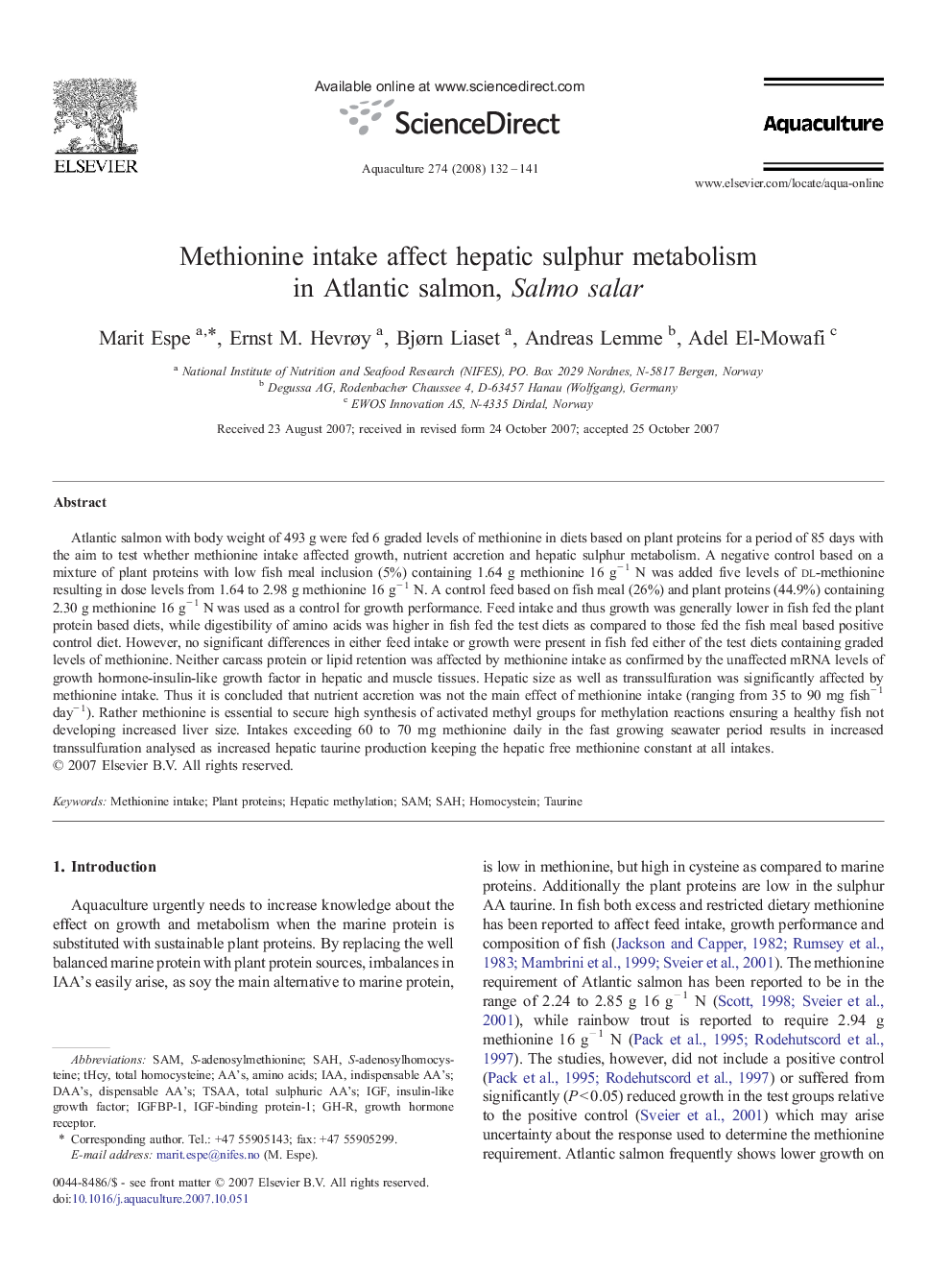| کد مقاله | کد نشریه | سال انتشار | مقاله انگلیسی | نسخه تمام متن |
|---|---|---|---|---|
| 2424906 | 1105328 | 2008 | 10 صفحه PDF | دانلود رایگان |

Atlantic salmon with body weight of 493 g were fed 6 graded levels of methionine in diets based on plant proteins for a period of 85 days with the aim to test whether methionine intake affected growth, nutrient accretion and hepatic sulphur metabolism. A negative control based on a mixture of plant proteins with low fish meal inclusion (5%) containing 1.64 g methionine 16 g− 1 N was added five levels of dl-methionine resulting in dose levels from 1.64 to 2.98 g methionine 16 g− 1 N. A control feed based on fish meal (26%) and plant proteins (44.9%) containing 2.30 g methionine 16 g− 1 N was used as a control for growth performance. Feed intake and thus growth was generally lower in fish fed the plant protein based diets, while digestibility of amino acids was higher in fish fed the test diets as compared to those fed the fish meal based positive control diet. However, no significant differences in either feed intake or growth were present in fish fed either of the test diets containing graded levels of methionine. Neither carcass protein or lipid retention was affected by methionine intake as confirmed by the unaffected mRNA levels of growth hormone-insulin-like growth factor in hepatic and muscle tissues. Hepatic size as well as transsulfuration was significantly affected by methionine intake. Thus it is concluded that nutrient accretion was not the main effect of methionine intake (ranging from 35 to 90 mg fish− 1 day− 1). Rather methionine is essential to secure high synthesis of activated methyl groups for methylation reactions ensuring a healthy fish not developing increased liver size. Intakes exceeding 60 to 70 mg methionine daily in the fast growing seawater period results in increased transsulfuration analysed as increased hepatic taurine production keeping the hepatic free methionine constant at all intakes.
Journal: Aquaculture - Volume 274, Issue 1, 31 January 2008, Pages 132–141